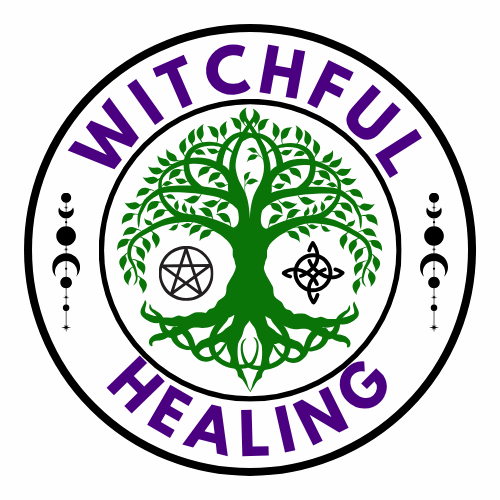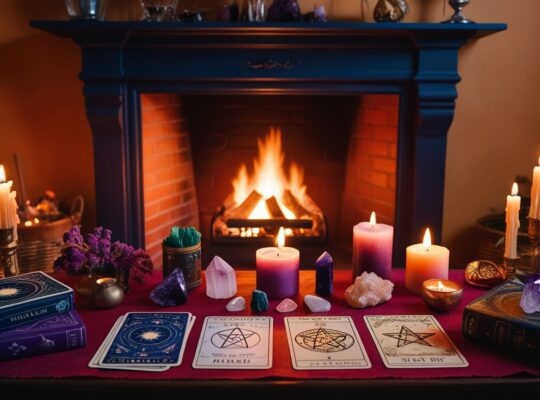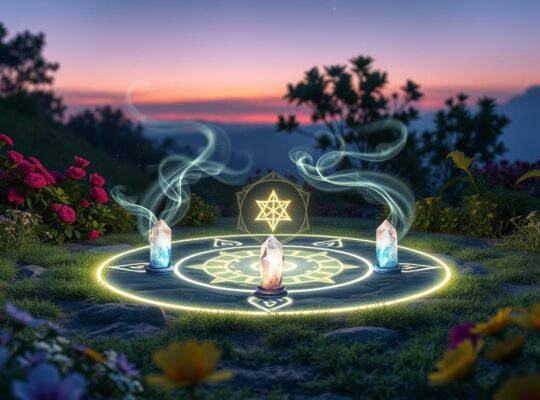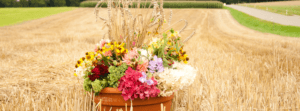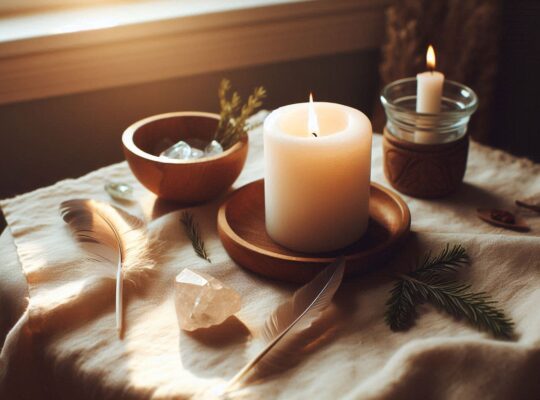The world of witchcraft is as diverse and vibrant as the individuals who practice it. Among the many paths one can take, eclectic witchcraft stands out for its flexibility and inclusivity. In this blog, we’ll explore what it means to be an eclectic witch, how you can personalize your practice, and how to integrate magic into your everyday life. Whether you’re a seasoned practitioner or a curious beginner, there’s something here for everyone.
Understanding Eclectic Witchcraft: A Modern Approach to Magic
Definition of Eclectic Witchcraft
Eclectic witchcraft is a personalized approach to magic that allows practitioners to draw from a variety of traditions and practices. Unlike more structured paths such as Wicca, which adhere to specific rules and rituals, eclectic witches have the freedom to explore and incorporate elements from different spiritual systems that resonate with them. This makes eclectic witchcraft a highly individualized and creative practice.
Historical Background and Evolution
The term “eclectic” comes from the Greek word “eklektikos,” meaning “selective.” Historically, eclecticism has been used to describe philosophers who selected doctrines from various schools of thought without fully committing to any single one. In the context of witchcraft, eclecticism gained prominence in the late 20th century as more people sought spiritual paths that reflected their unique beliefs and experiences.
Core Beliefs and Practices
Eclectic witchcraft is rooted in the belief that magic is a personal and transformative practice. It emphasizes self-discovery, empowerment, and the connection between the practitioner and the natural world. Common practices include meditation, spellwork, divination, and the use of tools like crystals, herbs, and candles.
Differentiation from Traditional Witchcraft and Wicca
While traditional witchcraft and Wicca often follow established rituals and honor specific deities, eclectic witchcraft allows for greater flexibility. Eclectic witches may choose to work with deities from various pantheons or none at all. The focus is on what feels meaningful and effective for the individual.
Creating Your Own Path: Personalizing Eclectic Witchcraft
Choosing Elements from Various Traditions
One of the joys of eclectic witchcraft is the ability to draw from a wide range of traditions. Whether it’s the herbal knowledge of folk magic, the ceremonial aspects of Wicca, or the meditative practices of Eastern philosophies, eclectic witches select elements that resonate with their personal beliefs and experiences.
Incorporating Personal Spiritual Beliefs
Eclectic witchcraft encourages practitioners to incorporate their own spiritual beliefs into their practice. This could mean honoring ancestors, working with spirit guides, or integrating personal rituals that hold special significance.
The Importance of Intuition and Personal Experience
Intuition plays a central role in eclectic witchcraft. Practitioners are encouraged to trust their instincts and learn from personal experience. This approach fosters a deeper connection to one’s inner wisdom and enhances the effectiveness of magical work.
Examples of Personalized Rituals and Practices
Personalized rituals might include creating a unique altar, crafting spells with specific intentions, or celebrating seasonal changes in a way that feels authentic. The key is to design practices that align with your spiritual journey and goals.
Tools and Supplies for the Eclectic Witch
Essential Tools: Altars, Herbs, Crystals, Candles, etc.
Eclectic witches often use a variety of tools to enhance their practice. Altars serve as a focal point for rituals, while herbs, crystals, and candles are used for their energetic properties. Each tool is chosen based on its significance to the practitioner’s intentions.
DIY vs. Purchased Supplies
Many eclectic witches enjoy crafting their own tools and supplies, such as homemade candles or herbal blends. This adds a personal touch and infuses the items with the practitioner’s energy. However, purchased supplies are also perfectly acceptable, especially when ethically sourced.
Ethical Sourcing of Materials
When acquiring materials, it’s important to consider their ethical and environmental impact. Supporting local artisans, using sustainable resources, and avoiding endangered plants are ways to practice responsible witchcraft.
Organizing and Maintaining a Sacred Space
Creating a sacred space is essential for any witch. This could be a dedicated altar, a corner of a room, or even an outdoor area. Regularly cleansing and organizing this space helps maintain its energetic integrity.
Community and Resources: Finding Support and Knowledge
Online and Offline Communities
The internet has made it easier than ever to connect with other witches. Online forums, social media groups, and virtual events provide opportunities to share experiences and learn from others. Offline, local meetups and workshops offer a chance to build community in person.
Books, Blogs, and Other Educational Resources
There is a wealth of resources available for those interested in eclectic witchcraft. Books, blogs, and podcasts offer insights into various practices and philosophies. Check out our previous blog on witchcraft 101 for more information.
Mentorship and Networking Opportunities
Finding a mentor can be invaluable for deepening your practice. Many experienced witches offer guidance through workshops, courses, or one-on-one sessions. Networking with other practitioners can also lead to collaborative learning and support.
Navigating Misinformation and Cultural Appropriation
As with any spiritual practice, it’s important to approach eclectic witchcraft with respect and mindfulness. Be wary of misinformation and strive to understand the cultural origins of the practices you incorporate. Avoid cultural appropriation by seeking permission and giving credit where it’s due.
Living an Eclectic Witchcraft Life: Everyday Magic and Mindfulness
Integrating Magic into Daily Routines
Magic doesn’t have to be reserved for special occasions. Eclectic witches often incorporate small rituals into their daily lives, such as morning affirmations, mindful cooking, or evening gratitude practices.
Practices for Mindfulness and Self-Care
Mindfulness is a key component of eclectic witchcraft. Practices like meditation, journaling, and nature walks help maintain balance and foster a deeper connection to the self and the world.
Celebrating Sabbats and Seasonal Events
While eclectic witches may not adhere to a specific religious calendar, many choose to celebrate the Sabbats or other seasonal events in their own way. These celebrations can be an opportunity to honor the cycles of nature and reflect on personal growth.
Balancing Witchcraft with Everyday Responsibilities
Balancing a magical practice with everyday life can be challenging, but it’s also rewarding. By integrating magic into daily routines, eclectic witches can maintain their spiritual connection while fulfilling their responsibilities.
Eclectic witchcraft offers a unique and flexible approach to magic that empowers individuals to create a practice that resonates with their personal beliefs and experiences. By embracing diversity, intuition, and creativity, eclectic witches forge a path that is truly their own. Whether you’re just starting out or deepening your practice, remember that the magic lies within you.
Until next time, keep your heart open and your spirit wild!

FAQs
Q: What is eclectic witchcraft?
A: Eclectic witchcraft is a personalized approach to magic that allows practitioners to draw from various traditions and practices, creating a unique spiritual path.
Q: How do I start practicing eclectic witchcraft?
A: Begin by exploring different traditions and practices that resonate with you. Trust your intuition and create rituals that align with your personal beliefs and goals.
Q: What tools do I need for eclectic witchcraft?
A: Common tools include altars, herbs, crystals, and candles. Choose items that hold significance for you and support your magical intentions.
Q: How can I find a community of eclectic witches?
A: Look for online forums, social media groups, and local meetups. Books and blogs also offer valuable insights and connections.
